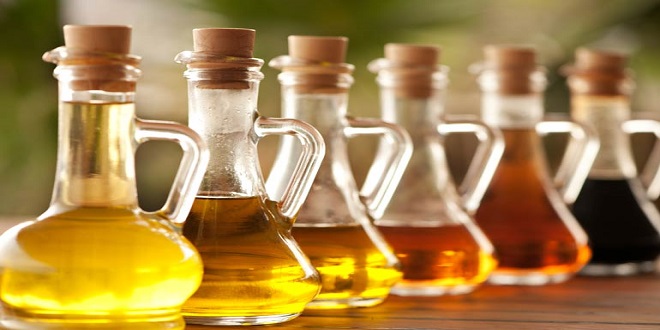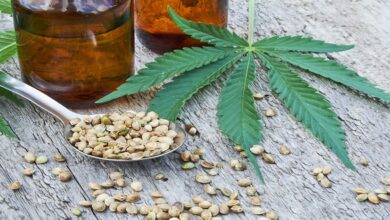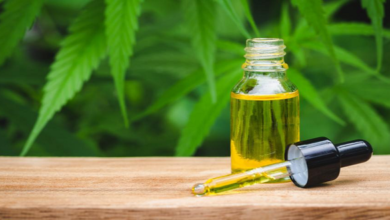CBD
What Are The Different Types Of Oil?

Oil is a petroleum-based thick substance, typically used as fuel or lubricant. When blending it with water, it separates itself because of the petroleum. Moreover, there are different types of oils: cooking oil, essential oil, and medical grade oil such as Medterra CBD oil.
We’ll discuss each of these and discover its uses and functions in the lives of humans.
- Cooking Oil – Cooking oil is a fatty liquid made of vegetables, livestock, or synthetic products that are used in baking, searing, and other cooking processes. It may also be known as edible oil as it is used in cold food preparation and flavoring, including salad dressings and bread dips.
Types of Cooking Oil
- Avocado oil – Avocado oil is regarded as one of the healthiest cooking oils since it contains a lot of monounsaturated fat, which is frequently promoted as a good fat or healthy fat. Utilize it for grilling, drizzling, searing, roasting, and sautéing. Its light, buttery flavor complements both savory and sweet dishes.
- Olive oil – The process of making olive oil involves crushing the olives into a paste, removing the remaining water from the mixture, and discarding it. A stone press can be used to do this. On a larger scale, high-tech steel machinery is frequently used. Depending on where the olives were grown, they can have a buttery, peppery, fruity, or grassy flavor. Most of the time, it is reserved for vinaigrettes or using it as a garnishing oil.
- Corn oil – A refined vegetable oil called corn oil is frequently used in cooking and deep frying in particular. Many vitamins and minerals are lost when corn is processed to make corn oil. However, there is a good quantity of vitamin E in the oil. A fat-soluble vitamin called vitamin E works as an antioxidant and anti-inflammatory in your body.
- Sesame oil – Antioxidants found in abundance from sesame oil suppress cell growth and development. Additionally, it is reported to enhance skin, blood sugar, and blood pressure. Sesame oil has a distinctive flavor that gives every meal a nutty undertone. Additionally, it offers 17% of the required dose of vitamin K, which supports bones and prevents blood clotting.
- Canola oil – Canola oil, which is produced from the rapeseed plant, has equivalent flavor, color, smoke point, and usage characteristics to vegetable oil. Canola oil is commonly considered a heart-healthy cooking oil since it has a great source of both polyunsaturated and monounsaturated fats, including omega-3 oils. Many sauces and dressings can be made using canola oil.
- Essential Oil – In aromatherapy, a type of herbal remedy that uses plant extracts to enhance health and well-being, essential oils are commonly used today. Concentrated plant extracts make up essential oils. Making essential oils requires a huge amount of plant material, which can make some of them pricey.
Types of Essential Oil
- Peppermint – to increase energy and aid in digestion. Make sure the oil is diluted before using it topically.
- Lavender oil – can aid with relaxation, pain relief, and sleep. To use it as aromatherapy, try adding it to a bath or diffuser, mixing it with water to create a body spritzer or room spray, or mixing it with a base oil to create body oil.
- Tea tree oil – An antiseptic, antibacterial, or antifungal. It can also be used to treat ringworm, athlete’s foot, and acne. If you have young children or animals at home, you shouldn’t diffuse tea tree oil because it has the potential to be neurotoxic.
- Frankincense oil – Mood, sleep, and inflammation can all be improved by frankincense. According to studies, it may also help with asthma and help avoid gum disease. Frankincense is utilized in skin treatments and has an earthy, spicy perfume that is suitable for aromatherapy. Before using frankincense oil on your skin, make sure you dilute it.
- Rosemary oil – Using rosemary oil can enhance cognitive function, encourage hair development, lessen tension and pain, uplift your mood, and lessen joint inflammation. Rosemary oil can be applied directly to the skin and is safe to use in aromatherapy. It is recommended not to use rosemary oil if you are pregnant, have epilepsy, or have high blood pressure.
- Medical Grade Oil – The cannabis plant is the origin of cannabidiol (CBD) oil. Numerous CBD products are low in tetrahydrocannabinol (THC), which implies they won’t get you high. The primary addictive component of cannabis is THC.
The use of CBD oil has a variety of potential advantages. These include decreasing stress and anxiety, lessening PTSD symptoms, helping alleviate chronic pain, and improving sleep quality.





